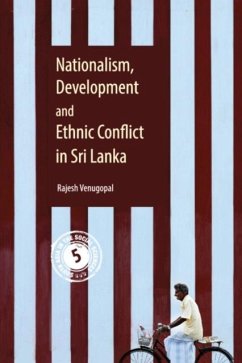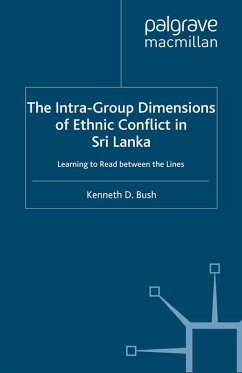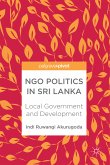This book examines the relationship between ethnic conflict and economic development in modern Sri Lanka. Drawing on a historically informed political sociology, it explores how the economic and the ethnic have encountered one another, focusing in particular on the phenomenon of Sinhala nationalism. In doing so, the book engages with some of the central issues in contemporary Sri Lanka: why has the ethnic conflict been so protracted, and so resistant to solution? What explains the enduring political significance of Sinhala nationalism? What is the relationship between market reform and conflict? Why did the Norwegian-sponsored peace process collapse? How is the Rajapaksa phenomenon to be understood? The topical spread of the book is broad, covering the evolution of peasant agriculture, land scarcity, state welfarism, nationalist ideology, party systems, political morality, military employment, business elites, market reforms, and development aid.
Dieser Download kann aus rechtlichen Gründen nur mit Rechnungsadresse in A, B, BG, CY, CZ, D, DK, EW, E, FIN, F, GR, HR, H, IRL, I, LT, L, LR, M, NL, PL, P, R, S, SLO, SK ausgeliefert werden.









